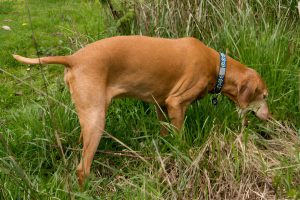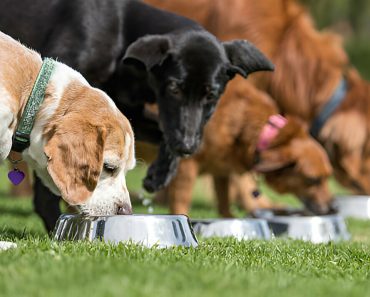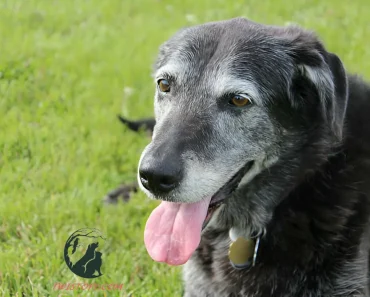Dogs eating grass is a common behavior, and while it can often be harmless, there are circumstances where it may become dangerous, Dangers of dogs eating grass.
Reasons Dangers Of Dogs Eating Grass

Dangers of dogs eating grass
Dogs eating grass is a common behavior that often puzzles pet owners. Here are several reasons why dogs might engage in this behavior:
- Nutritional Needs: Some dogs may eat grass to supplement their diet with essential nutrients like fiber, vitamins, and minerals that might be lacking in their regular food.
- Digestive Aid: Grass-eating can help with digestion. The fiber content in grass might assist in moving things along in the gastrointestinal tract, especially if the dog is experiencing some digestive discomfort.
- Inducing Vomiting: It’s a popular belief that dogs eat grass to make themselves vomit when they feel unwell. While this might not be the primary reason, some dogs do vomit after eating grass, possibly to expel something causing them discomfort.
- Instinctual Behavior: Dogs are descendants of wild canines who consumed a variety of plants. This behavior might be a leftover instinct from their ancestors who ate plants to balance their diet or self-medicate.
- Boredom or Anxiety: Dogs might eat grass out of boredom, stress, or anxiety. This behavior can serve as a distraction or a way to expend energy.
- Enjoyment: Simply put, some dogs might just like the taste and texture of grass. It can be a sensory experience they enjoy.
- Hunger: If a dog is hungry and there’s no other food available, it might turn to grass as an alternative.
- Exploration: Dogs explore the world with their mouths. Eating grass can be part of this exploratory behavior, especially in younger dogs or puppies.
While grass-eating is generally considered normal for dogs, it’s essential to ensure the grass isn’t treated with pesticides or chemicals that could be harmful. If your dog is eating grass excessively or showing signs of illness, it’s best to consult with a veterinarian to rule out any underlying health issues.
Potential Risks
While grass-eating is generally considered harmless, there are several potential risks associated with this behavior:
- Pesticides and Chemicals: Grass treated with pesticides, herbicides, or other chemicals can be toxic to dogs. Ingesting these substances can lead to poisoning, which may cause symptoms such as vomiting, diarrhea, drooling, seizures, or even more severe health issues.
- Parasites: Grass can harbor parasites such as roundworms, hookworms, and other intestinal parasites. When dogs eat grass contaminated with parasite eggs or larvae, they can become infected, leading to gastrointestinal issues and other health problems.
- Toxic Plants: Some lawns and gardens may contain plants that are toxic to dogs. If a dog accidentally ingests toxic plants while eating grass, it could suffer from symptoms like vomiting, diarrhea, drooling, lethargy, and in severe cases, organ failure.
- Gastrointestinal Obstruction: In rare cases, dogs that eat large quantities of grass can develop gastrointestinal obstructions. The fibrous nature of grass can sometimes lead to blockages in the digestive tract, requiring veterinary intervention.
- Choking Hazard: Long blades of grass or tough grass can pose a choking hazard, especially if the dog does not chew it thoroughly before swallowing. This can lead to gagging, coughing, or choking.
To minimize these risks, it’s important to supervise your dog while outside, ensure your lawn is free from harmful chemicals, and keep an eye on what your dog is eating. If your dog shows any signs of distress or illness after eating grass, consult your veterinarian promptly.

Dangers of dogs eating grass
Do dogs eat grass when they have worms?
Yes, dogs might eat grass when they have worms, although it’s not a definitive symptom of worm infestation. Dogs may eat grass for various reasons, including nutritional deficiencies, digestive upset, or behavioral factors. However, if your dog has worms, it might exhibit other symptoms such as:
- Diarrhea
- Vomiting
- Weight loss despite a normal appetite
- Lethargy
- Worms visibly present in the feces or near the anus
- Scooting (dragging their bottom along the ground)
- A bloated or distended abdomen
If you suspect your dog has worms or if you notice any of these symptoms, it’s essential to consult your veterinarian for proper diagnosis and treatment. They can perform tests to identify the type of worms present and recommend an appropriate deworming protocol to address the issue.
Is it cause for concern if my dog frequently consumes grass?
While occasional grass-eating is generally normal for dogs, there are certain situations where you should be concerned:
- Frequent or Excessive Grass-Eating: If your dog is constantly eating grass and it seems compulsive or excessive, it could indicate an underlying issue such as nutritional deficiencies, digestive problems, or psychological issues like anxiety or boredom.
- Vomiting Frequently After Eating Grass: If your dog often vomits after eating grass, it might be a sign of gastrointestinal discomfort or other health problems. While some dogs may use grass to induce vomiting when they feel unwell, frequent vomiting warrants a vet visit.
- Changes in Behavior or Health: If you notice any changes in your dog’s behavior, appetite, energy levels, or overall health in conjunction with grass-eating, it’s important to consult a veterinarian. Symptoms like lethargy, diarrhea, drooling, or signs of distress can indicate a more serious condition.
- Potential Exposure to Toxins: If you suspect the grass your dog is eating has been treated with pesticides, herbicides, or other chemicals, you should be concerned. These substances can be toxic and lead to serious health issues.
- Presence of Parasites: Grass can sometimes harbor parasites. If your dog eats grass frequently and develops symptoms like weight loss, diarrhea, or a dull coat, a vet check for parasites is advisable.
In general, if your dog’s grass-eating behavior seems out of the ordinary or is accompanied by other symptoms, it’s best to consult with your veterinarian. They can help determine if there’s an underlying health issue and provide appropriate advice and treatment.
Prevention and Management

Dangers of dogs eating grass
To help prevent and manage your dog’s grass-eating behavior, consider the following strategies:
- Ensure a Balanced Diet: Make sure your dog is getting a well-balanced diet that meets all its nutritional needs. Sometimes dogs eat grass due to a deficiency in their diet. Consult with your veterinarian to choose high-quality dog food and consider adding supplements if needed.
- Provide Plenty of Exercise and Mental Stimulation: Boredom and anxiety can lead to grass-eating. Ensure your dog gets enough physical exercise and mental stimulation through regular walks, playtime, and interactive toys. Engaging activities can reduce the likelihood of your dog eating grass out of boredom.
- Monitor and Limit Access to Grass: Keep an eye on your dog when it’s outside, especially in areas where grass might be treated with pesticides or chemicals. Use a leash if necessary to control where your dog goes and what it can access.
- Create a Safe Play Area: Designate a specific area in your yard where you know the grass is safe and free of chemicals. This can allow your dog to explore and chew without the risk of ingesting harmful substances.
- Provide Alternative Chew Options: Offer safe and appropriate chew toys or treats to satisfy your dog’s need to chew. This can distract them from eating grass and provide a healthy outlet for their chewing instincts.
- Train Commands: Teach your dog commands like “leave it” or “no” to help discourage grass-eating. Consistent training can redirect your dog’s attention and behavior.
- Consult a Veterinarian: If your dog’s grass-eating behavior is excessive or accompanied by signs of illness, consult your veterinarian. They can check for underlying health issues and provide specific advice tailored to your dog’s needs.
- Address Anxiety and Stress: If your dog eats grass due to anxiety or stress, work on identifying and addressing the root causes. This might involve changes in the environment, providing a safe and calm space, or in some cases, consulting with a professional dog behaviorist or veterinarian for further guidance.
By taking these preventive measures and managing your dog’s behavior, you can reduce the risks associated with grass-eating and ensure your dog’s overall well-being.









